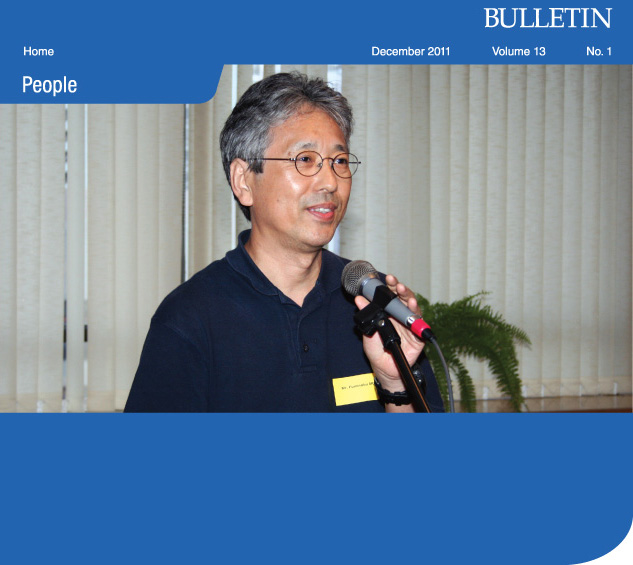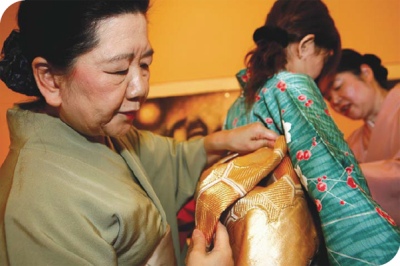
|
Oscar Wilde may have been of the view that "Life imitates Art far more than Art imitates Life" but a new book throws light on the question by examining concepts of 'the strong' and 'the weak' in Japanese literature and showing how they reflect certain aspects of society. By using texts from classical and modern Japanese literature, Fuminobu Murakami, formerly Associate Professor in the Department of Japanese Studies, explores the concept of 'respect for the strong', as a notion of an evolutionary society, and 'sympathy for the weak', as a notion of a non-violent and changeless egalitarian society. In The Strong and the Weak in Japanese Literature: Discrimination, Egalitarianism, Nationalism, Mr Murakami uses the term 'strong' to refer not just to those with strength and power, but also other ideal attributes such as beauty, youth and goodness. "For the strong I mean strong people, strong characters in the novels and also in evolution,"he said. "They are associated not only with the power of life, competition, evolution, progress, development, ability, effectiveness, efficiency, individuality, the future, hope and romance, but also with violence, fighting, bullying, discrimination and sacrifice." Sympathy for the weak Similarly, the term 'weak' implies not only the weak and infirm, but also the disadvantaged, the indecent, the unsophisticated and those generally shunned by society. "Sympathy for the weak, this is the notion that ideally appears in the non-violent changes in egalitarian society. They invoke notions of peace, egalitarianism, anti-discrimination and welfare, as well as stagnation, retreat, retrogression, degeneration and the decline of vital powers." "These concepts do not only reflect Japanese society, I think it is a world-wide phenomenon." To test his hypothesis, Mr Murakami explored Japanese literature stretching as far back as the 10th century Tale of Genji and The Tale of the Heike compiled in 13–14th centuries, all the way up to 20th century literature. "During the writing of this book I realized two points. The first one is that respect for the strong is closely related to the respect for endeavour, or hard-working people, while sympathy with the weak is closely related to egalitarianism." "Secondly, in terms of the transition between the 10th and the 20th century Japanese stories, I found there was a relationship between egalitarianism and nationalism. In a sense this relationship was born together in opposition to the previous despotic, absolute monarchy and feudal society ruled by aristocratic and religious leaders." Liberated from oppression "Together, these notions – egalitarian and nationalism – supported the liberation of the common people from the oppression of a small number of high-status people in society. Egalitarianism itself is very different in the 10th century to what it is in the 20th century but, on the other hand, there are similarities between the sympathy for the weak in the 10th century stories and in the modern Japanese novels written by Kawabata Yasunari." "In this book I focus on how these stories reflect society. I'm looking at them from a cultural viewpoint and these are views that are not limited to Japanese society. European society has Thomas Hobbs and John Locke who advocated egalitarianism. On the other hand they also supported nationalism." "As the basis of literary analysis, I dealt also with some Japanese philosophers, Buddhist and Confucianist monks and I realized that I needed to divide egalitarianism into two types: the first is the quality of people in nation states which is born of the overthrow of the unequal aristocratic and feudal society of the past. Initially this served to preserve the nation state by fighting against other nation states. This is equality for the sake of the development of the nation state. By that I mean the nation state grants equality to its members who in turn must fight on its behalf." "The second kind of egalitarianism is the humanistic form of equality based on the assumption that we cannot measure the whole value of any human being. We don't know how much we are able to do something. In Europe the first type of egalitarianism is represented by Hobbs and Locke and the second is represented by Karl Marx and also more recently by the American philosopher John Rawls." |
"In Japan we also have some philosophers who supported both kinds of egalitarianism for the nation state from the 8–20th century." By using the two concepts of the 'weak' and the 'strong' Mr Murakami skilfully weaves a narrative that is part literary criticism, and part social commentary and provides a new insight in the ways in which Art and Life inform each other. |
|
| Back |
